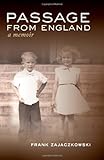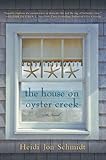
Passage from England
by Frank Zajaczkowski
CreateSpace, 378 Pages
Get it at Amazon >>
When author Frank Zajaczkowski contacted me about reading and reviewing his memoir I was flattered – as I always am. Then I went to his website and read the excerpts posted there, and immediately I was hooked, not just by his story – his journey from a small boy in post-war England to southern California, and his other journey, less prominent in the book, but still relevant, from California to the Virgin Islands, as an adult – but also because his descriptive paragraphs have some of the best imagery I’ve read in years, though, granted, a lot of what I’ve been reading this summer is beachy novels about women with designer houses, SUVs, strings of kids, and the ability to either summer or just live on the island of Nantucket.
So Mr. Zajaczkowski’s book served as a palate cleanser, of sorts, but also as a glimpse into the recent past. That the author is the same age as my mother, who is also the child of a war veteran, also an American living abroad (in her case, Mexico, which, I suspect, shares more similarities than differences with St. Thomas, despite the long distance between them), made the story resonate with me. I felt his trepidation at being put on a train, then on a boat to America, at a young age, and cowered with him when his alcoholic father grew violent. I felt his sense of loss, and even betrayal as his brother left the family to become an actor (I won’t share what he’s done, but I confess I looked him up on IMDB after I finished the book), and even more so, at the end of the book, when the high school aged Frank and his sister are abandoned again, by their mother this time.
In between those two events – the ocean crossing and the final betrayal, there are a series of coming of age stories – seeing the Tarzan house, kissing a girl for the first time, first jobs, first cars – all seen through the slightly filmy lens of memory, but with no less impact than if they were happening now.
Interspersed among the memories are a fresher set of memories, that of the adult Frank’s move from L.A. to St. Thomas with his wife, and the frustrations tied to that process – delayed shipments of belongings, hurricanes and other storms, where to spend holidays when you no longer have a home “back home…” the list goes on.
If there are any flaws in Passage from England they are limited to a few typos that got missed in editing (it happens at all levels of publishing) and my own desire to find out what happened after the last scene – but that, I hope, will be in Zajaczkowski’s next memoir.
As to this one, I’d recommend it to anyone who is part of the “baby boomer” generation, and to those of us who are their children, to ex-pats, immigrants, and the spouses and friends thereof, and to anyone who wants to know what life was like just a few decades ago. It’s a compelling story, and a great read.
Goes well with: fish tacos and cold beer.

